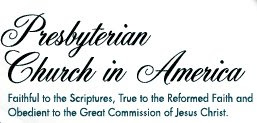Denomination Blues, Reds, White, Greens
 Tim Keller, the lead pastor of Redeemer Church in New York City, one of the flagship churches in the Presbyterian Church in America (along with my church, Wheatland in Lancaster, Pa...he-he), has penned a very thoughtful essay on what he thinks is so great about the PCA.
Tim Keller, the lead pastor of Redeemer Church in New York City, one of the flagship churches in the Presbyterian Church in America (along with my church, Wheatland in Lancaster, Pa...he-he), has penned a very thoughtful essay on what he thinks is so great about the PCA. Interestingly, it is not because there is total unity on all issues theological and practical. On essential Reformed doctrine, total agreement. On lesser doctrines and the working out of such doctrines, hardly unanimity. Keller argues, I think quite successfully, that such diversity within a general confession is actually a good thing. One, it forces us to examine ourselves and our convictions in light of others' convictions. No one has a corner on the truth. Except, me of course (only a joke). Second, when differing, it provides an opportunity for us to exhibit grace and charity. Learning to fight fair is a rare skill. Some of the bitterest and rancorous fights I have seen have been in churches. And, that is to our shame.
In recent previous posts, I defined the divide between Protestant and Catholic. Should be clear on where I stand on that one. In yesterday's post, I detailed Finney's Free-Will versus a Reformed perspective of Predestination, and the various implications and outworkings of such doctrines. Should be clear where I stand on this generally, with some appreciation for Finney's perspective. He was hardly the arch-heretic I have heard others call him.
So today, I conclude this three part series on Denominational Blues by suggesting that God has ordained some differences within His Body of the Church to keep power out of the hands of monopolistic ecclesiastical authority. Catholicism's lack of internal and external accountability will be its demise if it does not Reform. Second, there are also different colors within the spectrum of Christendom (theological orientation, style differences, personality types, etc), and when one combines them, it creates White. A pure and spotless Bride. Marriage itself is a process of sanctification, so it does not mean that there is no conflict and learning and growing after the wedding day. We are being made pure.


Comments